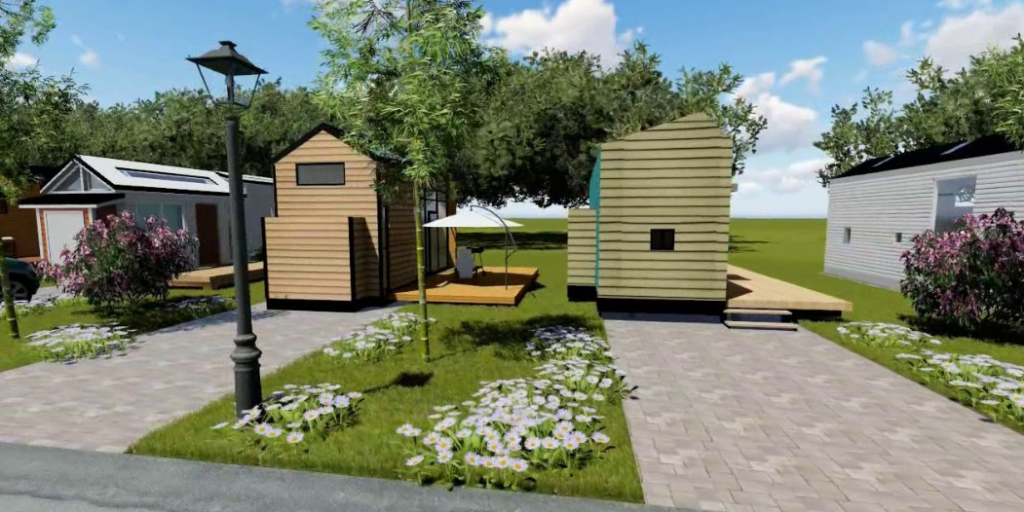NOVEMBER 19, 2018 05:32 PM,
UPDATED NOVEMBER 19, 2018 06:09 PM
The ordinance recently passed on a vote of 6-1 and has been rolled into the full 2019 budget, to be voted on this week. It allocates $250,000 for pre-development costs and would be the first step in launching what’s being described as a pilot project.
That one dissenting vote came from, you’ll never guess … Pam Roach, who took to Facebook on Sunday to lambaste the proposal as a “Thanksgiving surprise … And I don’t think you’re gonna like it.”
Roach went on to express a fear that, without clear policy and regulations, tiny-home developments will become magnets for “drug abusers, sex offenders and felons.”
Her comments are an unfortunate attempt to undermine what appears to be a straight-forward and simple plan to help address a well-entrenched housing affordability crisis in the unincorporated area, one that contributes to homelessness.
The idea behind the ordinance, according to Talbert, is to help ensure Pierce County is “well situated to receive (tiny homes) as an option.”
It tasks the county’s human services department with helping “make sure Pierce County has the appropriate land use codes and the different regulations that may need to be in place,” Talbert explained.
Call it a plan to develop a plan.

It’s also a small step that shows real promise, which is why seeing it used as a political punching bag is so darn depressing.
In describing the ordinance, Talbert cast it as one “truly just about affordable housing,” arguing that tiny homes have a wide array of potential applications.
The developments, he said, can serve those experiencing homelessness — as they do in Olympia at the well-known Quixote Village, which Talbert visited earlier this year — or be a solution to the soaring housing costs affecting people throughout the region.
“The seed money, if you will, (will) make sure that we are attracting potential developers — nonprofit or for-profit — who are looking to build and construct affordable housing,” Talbert said. “From my perspective, I want the county to be a partner in this, to help development, and to have input in where this type of product is going to go.”
“It’s a way to incentivize affordable housing in the county,” Richardson added. “It’s trying to find a solution for people.”
On Monday, Roach continued to blaze down her own path, announcing her intention to propose at least seven amendments to the Richardson and Talbert budget ordinance.
Roach’s planned amendments include everything from requiring tiny-house developments be built near transit lines to ones that prohibit sex offenders, ban pets and establish curfews.
Roach wasn’t buying Talbert’s and Richardson’s contention that the motivation for the amendment is dealing with Pierce County’s housing affordability crunch.
Serving people experiencing homelessness, an adamant Roach argued, “is exactly what this is for.”
Going on to berate a perceived lack of public involvement, Roach insisted that tiny homes will become “encampments or colonies,” at least without the council acting now to prevent it.
“I’m not opposed” to tiny-home developments, Roach said, “but only under certain circumstances, and one does not happen to be putting in tiny-home homeless encampments.”
Pressed on the glaring discrepancies between what she fears and what Talbert and Richardson describe, Roach said, “They’re going to tell you what they think is going to make them look good.”
OK then.
Sadly, much of this can be chalked up to business as usual with the Pierce County Council. Squabbling, posturing and political performance art have become time-honored traditions with this body, and it shows no sign of slowing down.
At the same time, as the county grows and our affordable housing crisis grows more pressing, it’s perhaps worth remembering that real lives are at stake. Whether that crisis manifests in people being unable to purchase homes or in full-blown homelessness, all of it deserves action from our elected officials. And none of it should be too hot to touch.
Instead, what we’ve seen this week is a simple, preliminary proposal that should have easily won unanimous bipartisan support become a lightning rod of division.
So it goes, I suppose, but that doesn’t make it right or easy to swallow.
For his part, Richardson noted that whatever the human services department comes up with will be back before the council and that he’s dedicated to a “transparent, public process.”
“We need to come up with solutions for affordable housing, and we need to do it in the most public way we can,” Richardson said.
Sounds simple, right?
It really should be.

